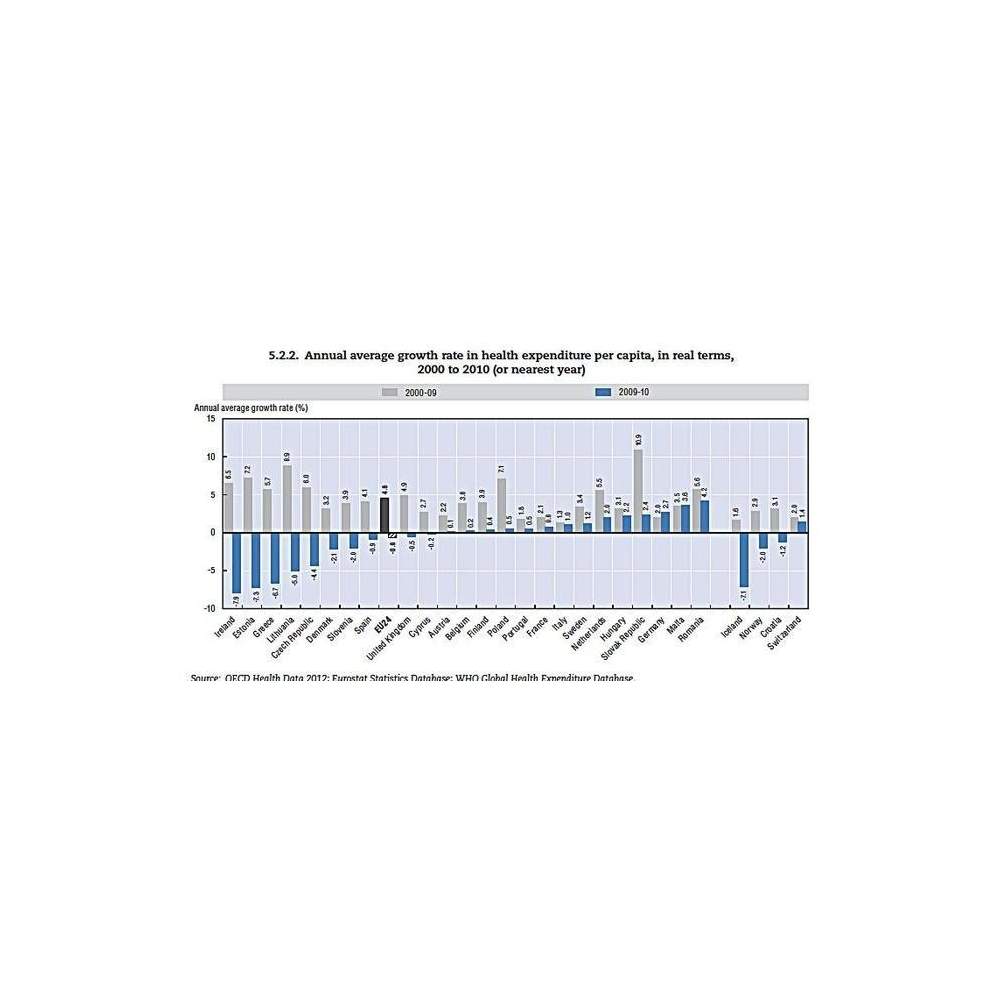EL GASTO EUROPEO EN SANIDAD HA CAIDO POR PRIMERA VEZ DESDE 1975
Spending on health care in the European community has fallen for the first time since 1975
The crisis has begun to change the European health systems. Public health costs have begun to fall across Europe, for the first time since 1975. Spain spent and spends less than the European average, before and during the crisis.
According to the latest report of theOECD on health in Europe, "The reduction and cuts in public health, per capita per year, and in% of GDP, end to widespread increases that had happened for several decades."
Before the global crisis that erupted between 2007 and 2008, the OECD emphasizes' public health expenditure, per capita and year,umentaban two to three times faster than the income of all countries". Between 2000 and 2009, spending on health increased in European OECD countries at an annual average of 4.6%, well above the economic growth of the time, never reached 3%.
As of 2010, the average health expenditure declined by 0.6%. In some countries, cuts in salidad are very spectacular. In Greece, for example, public health expenditure grew at an average of 5.7% between 2000 and 2009, to reduce by 6.7% in 2010.
In this process continentalSpain and was slightly below the average. During the years of high growth in public spending on health between 2000 and 2009, Spain reached the exact middle cremientoacross the OECD, by around 4%.
In those years, the Spanish government spending increase in health, grew faster in countries likeFrance, Germany, USA. UU. and ItalyWhose growth ranged from 1.6% to 3.3%. By contrast, public spending on health grew significantly more in countries such as the UK, Poland and Ireland, which benefited from increases of 4.4% to 5.7%.
After the outbreak of the international crisis, widespread cuts that began to occur between 2009 and 2010, have affectedunevenly across Europe.
Between 2009 and 2010, the average cuts in Europe was 0.5%. Spain touched that red line, below, with cuts of 0.9% of health spending per head, during those years. In countries like France, Italy, Germany, Portugalor Sweden, there were no cuts. And health spending has continued to increase slightly, from 0.5% to 2.7%. The health cuts were much harder than in Spain in countries like Ireland, Greece and the Czech Republic, where health spending has declined between 4.4% and 7.9%.
The OECD underlines that governments everywhere suffer the same "pressure" to try to prevent or contain health cuts, commenting: "It might be reasonable to stress the possible negative consequences of public spending cutshealth, long-term, they could ended affected the overall health of European populations, if they were to continue indefinitely the general reduction in public health spending. "
The economic outlook for OECD predict a"Fast restoration"government health spending over the next years. According to the Organization, Europe grow and recede comparatively little in lfor international scene over the next ten or twenty years, when aging is very sensitive in countries like Germany

